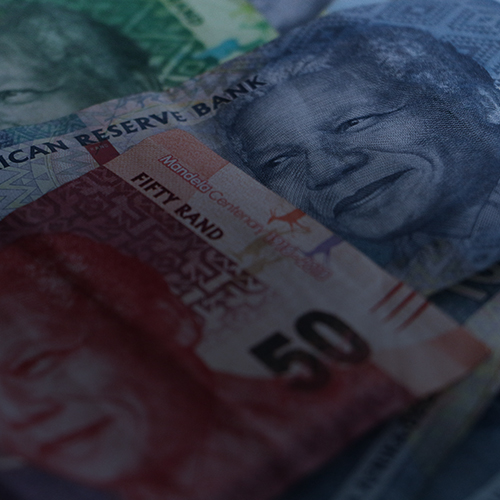Concerns around a possible global trade war continued in July with tension between the US and China remaining strained as the two countries’ tit-for-tat trade spat weighed heavily on emerging markets (EMs), including South Africa (SA). The local bourse ended July slightly negative with the FTSE JSE All Share Index (J203) closing 0.3% lower MoM (down 3.5% YTD) as major gold miners, mining houses and Naspers (with its c. 20% weighting) especially came under pressure. Naspers’ c. 31% held Hong Kong-listed associate, Tencent, fell more than 9% MoM (and c. 25% from a January peak according to Business Day) on the back of pressure from a global tech-stocks rout as investors price in lower expectations for the company’s results (due mid-August). Financial counters were the outperformers in July with the FINI-15 adding 6.4% MoM (-3.9% YTD), while Industrials closed 2.3% down MoM (-6.9% YTD). Resources declined by 1.4% MoM (+14.4% YTD) as market-heavyweight commodity companies, including BHP Billiton and Anglo American recorded MoM losses of 2.8% and 3.1%, respectively.
On the macro front, SA retail sales advanced 1.9% YoY in May, the second-slowest pace of gains since July 2017. On a YoY basis, June private sector credit recorded a rise of 5.68% – higher than market expectations for a 5.07% advance. Local June consumer price inflation (CPI) accelerated at a slower-than-expected pace with annual inflation rate coming in at 4.6%, compared with 4.4% in May. Core inflation, excluding the volatile food, beverages, energy etc. categories, was 4.2% in June.
At its July meeting, the SA Reserve Bank (SARB) held the benchmark repo rate at 6.5% and also reduced its 2018 growth outlook to 1.2% from 1.7%. The SARB projected the growth rate to accelerate to 1.9% in 2019 and 2.0% in 2020. SARB Governor Lesetja Kganyago stated that a possible tariff war (between China and the US) as well as higher global oil prices pose the main dangers to SA inflation. SA’s unemployment rate was reported at 27.2% in 2Q18 from 26.7% in 1Q18, while June’s trade surplus was more than twice market expectations at R12bn. The rand showed some resilience in July, strengthening by 3.3% MoM (-7.2% YTD) on a slightly softer dollar, some risk appetite and news of a loan from China to assist beleaguered power utility, Eskom.
In politics, President Cyril Ramaphosa has now already bagged c. $35bn of the $100bn investment he said that he would bring into the country and SA hosted the BRICs (Brazil, Russia, India, China and South Africa) Summit in July. However, the month was capped off by a late-night announcement from the President that the ANC had unilaterally decided to amend section 25 of the Constitution (the property clause), despite ongoing hearings countrywide around the proposal. Ramaphosa noted that the parliamentary constitutional amendment committee would finalise the Section-25 amendment proposal and determine how it would be implemented.
Anglo American
Anglo American (AGL) recently reported 1H18 results, which showed that Anglo enjoyed the tailwind of stronger 1H18 commodity prices for some key resources (particularly copper and coal). Free cash flow generation remained strong and Anglo has used the cash to further lower its net debt by $500mn (net debt now stands at $4.0bn) and by continuing to pay 40% of its earnings as a dividend. The stronger balance sheet should allow the company to better withstand the next downturn, given the sector’s cyclical nature.
The share continues to appear cheap at a mid-teen free cash flow yield – trading at a significant discount to the wider market. However, whilst Anglo’s valuation remains compelling, the weighting in our portfolio has been reduced following a combination of strong share price appreciation and a pullback in commodity prices.
Written by:
Seleho Tsatsi, Investment Analyst
Dischem Group
After listing on the JSE in late 2016, Dischem has quickly become one of the better compound growth stories on the JSE. Given what appears to be a lengthy growth runway, we believe investors can look forward to earnings growth of 20%-plus p.a. over the medium term as the store base matures and as the positive operating leverage flows through to the bottom-line on the back of growing scale.
After a period of investment in wholesale distribution capacity in 2018 weighed on the share price, we see this as an opportune time to invest in the business. We expect strong double-digit shareholder returns for the company going forward.
Written by:
Henry Biddlecombe, Investment Analyst




